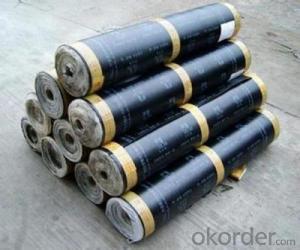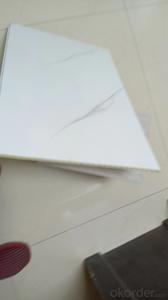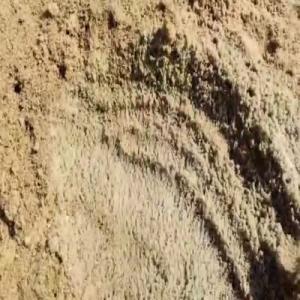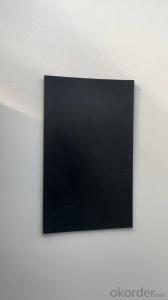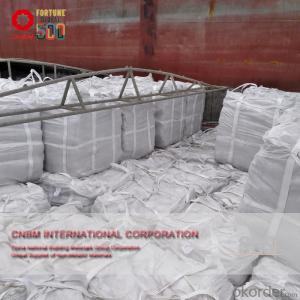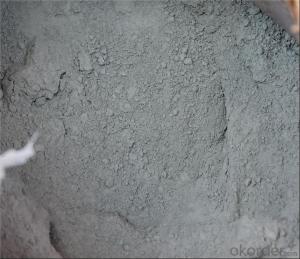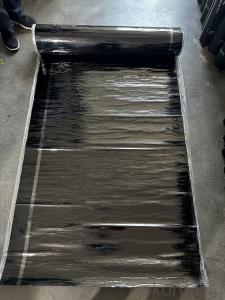Root-puncture Resistant Waterproofing Membrane
- Loading Port:
- China main port
- Payment Terms:
- TT OR LC
- Min Order Qty:
- 10000 m²
- Supply Capability:
- 300000 m²/month
OKorder Service Pledge
OKorder Financial Service
You Might Also Like
1.Structure of Root-puncture Resistant Waterproofing Membrane:
Because the traditional waterproofing materials as well as ordinary polymer waterproof material, all kinds of waterproof coating can meet the requirements of building planting system, because these materials do not have root resistance, it is easy to plant root penetration, the building damage and leakage, directly led to the failure of the "planting green building system. And a PVC duplex root puncture resistant waterproofing materials in copper base as root membrane resistance, resistance to plants with long roots or rhizomes puncture performance, strong cohesive force, good stability, low temperature flexibility and good heat resistance, chemical corrosion resistance and radiation resistance is strong, for more than 20 years still showed good resistance waterproof performance.
2.Main Features of Root-puncture Resistant Waterproofing Membrane:
Waterproof and prevent plant root through the dual function.
Durable, resistant to cough up, tear resistance, resistance to fatigue
Tensile strength is high, the change of asphalt coating cover thickness is big
Corrosion resistance, resistance to mildew, good corrosion resistance
3.Specification of Root-puncture Resistant Waterproofing Membrane:
| Tensile Strength | 800N/5CM | |||
| Elongation at break | 40% | |||
| Heat resistance | 115℃ | |||
| Low temperature resistant | -35℃ | |||
| Thickness | ≥4mm |
4.Root-puncture Resistant Waterproofing Membrane Images;
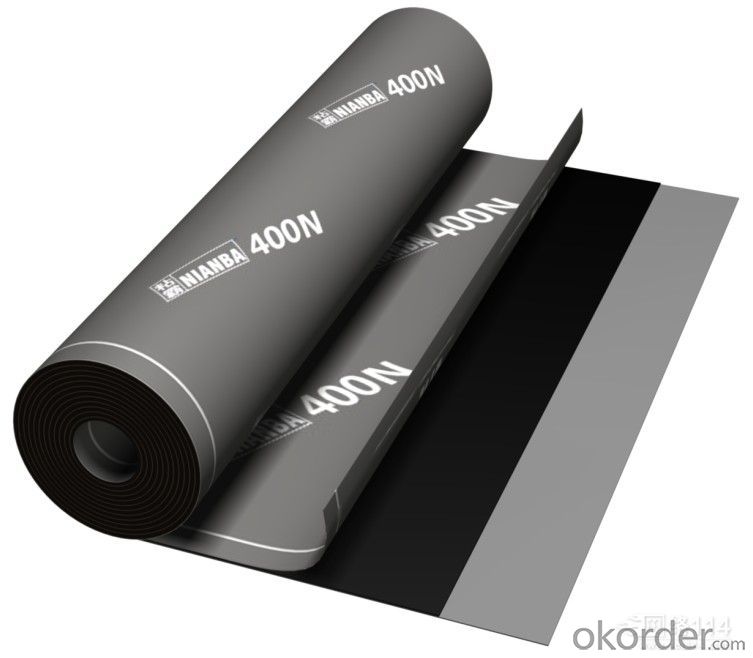
- Q:Can a waterproofing membrane be used in conjunction with solar panel installations?
- Yes, a waterproofing membrane can be used in conjunction with solar panel installations. Waterproofing membranes are commonly used to protect roofs and other surfaces from water damage, and they can provide an additional layer of protection for solar panels. This can help to prevent water infiltration and potential damage to the solar panels and their electrical components. Additionally, waterproofing membranes can also help to extend the lifespan of the solar panel system by providing an extra barrier against moisture and other environmental factors.
- Q:BS waterproofing membrane is modified? There are not a few thick drawings, how to do
- SBS waterproofing membrane is elastomer modified asphalt waterproofing membrane. Performance indicators Implementation of GB 18242-2008.
- Q:Can a waterproofing membrane be used for chemical storage facilities?
- Yes, a waterproofing membrane can be used for chemical storage facilities. Waterproofing membranes are designed to create a barrier against water and moisture, and they can also provide protection against chemical spills and leaks. These membranes are typically made from durable materials such as PVC or EPDM, which have excellent resistance to various chemicals. Additionally, waterproofing membranes can be applied to various surfaces including concrete, metal, and even existing chemical storage tanks. By using a waterproofing membrane, the facility can prevent water ingress, minimize the risk of corrosion, and ensure the integrity of the chemical storage area. It is important to select a waterproofing membrane that is specifically designed and tested for chemical resistance to ensure optimal performance and safety in such facilities.
- Q:Are waterproofing membranes resistant to soil chemicals?
- Waterproofing membranes are commonly resistant to soil chemicals. These membranes are created to act as a barrier against water and moisture, and they are often manufactured using materials that can resist various chemicals found in soil. This resistance aids in safeguarding the membrane from deterioration or harm caused by exposure to soil chemicals. Moreover, waterproofing membranes are frequently subjected to testing and certification to ensure compliance with industry standards and regulations, including resistance to soil chemicals. Nevertheless, it is important to acknowledge that the degree of resistance may vary depending on the particular type and quality of the waterproofing membrane employed. Thus, it is crucial to select the appropriate membrane that is specifically designed to endure the soil conditions and chemicals present in the project area. Seeking advice from a professional or the manufacturer can offer further guidance on the most suitable waterproofing membrane for a specific application.
- Q:Can a waterproofing membrane be used in areas with high groundwater levels or flooding?
- The utilization of a waterproofing membrane is viable for areas with elevated groundwater levels or occurrences of flooding. These membranes are specifically designed to create a barrier against water infiltration, effectively safeguarding structures from water-related harm. Commonly composed of materials like bitumen, rubber, or synthetic polymers, these impermeable membranes are applied to foundations, basements, roofs, and walls to impede water penetration. In regions where groundwater levels are elevated or frequent flooding is experienced, the use of a waterproofing membrane becomes even more essential. Functioning as a protective layer, this membrane prevents water from permeating the structure and causing potential damage. It guarantees that the building's interior remains dry and devoid of water-related issues such as mold, mildew, and structural deterioration. However, it is crucial to consider the specific circumstances of the site, including the level of groundwater or severity of flooding. In extreme cases characterized by high water pressure or prolonged flooding, additional waterproofing measures may be required. These measures could involve the installation of a drainage system or the utilization of thicker and more durable membranes. To ensure the suitable membrane system is selected and installed correctly for the unique conditions of the site, it is advisable to consult with a professional waterproofing contractor or engineer.
- Q:Can a waterproofing membrane be used on terraces or patios?
- Terraces and patios can benefit greatly from the application of a waterproofing membrane. To avoid water damage and leakage, it is highly recommended to use this protective layer in these areas. Given that terraces and patios are exposed to different weather conditions, such as rain and snow, moisture can easily seep into the underlying structure. To counteract this issue, a waterproofing membrane acts as a barrier, preventing water from infiltrating the surface and safeguarding the integrity of the terrace or patio. This solution not only extends the lifespan of the structure but also prevents costly repairs in the future. Moreover, the use of a waterproofing membrane contributes to the creation of a more comfortable and functional space, as it eliminates the risk of water accumulation and potential slip hazards. All in all, investing in a high-quality waterproofing membrane is a wise choice for those seeking to protect their terrace or patio from water damage.
- Q:Can a waterproofing membrane be used on tunnels with electrical installations?
- Yes, a waterproofing membrane can be used on tunnels with electrical installations. These membranes are designed to provide a protective barrier against water ingress, ensuring the safety and functionality of electrical installations in tunnels.
- Q:Can a waterproofing membrane be applied on a sloped surface?
- On a sloped surface, it is possible to apply a waterproofing membrane. In fact, it is even more crucial to apply a waterproofing membrane on a sloped surface compared to a flat one. Sloped surfaces tend to experience more water runoff, which increases the risk of water infiltration and harm to the underlying structure. By applying a waterproofing membrane, a barrier is created to prevent water from penetrating into the structure and instead directs it towards drainage systems. Nonetheless, it is vital to ensure that the membrane is correctly installed and adhered to the slope in order to prevent potential issues such as water pooling or detachment of the membrane. Furthermore, the waterproofing membrane used should be suitable for sloped surfaces and possess the necessary flexibility to accommodate any movements or shifting that may occur.
- Q:Can a waterproofing membrane be used on tunnels with emergency exits?
- Certainly! Waterproofing membranes can be applied to tunnels that have emergency exits. It is strongly advised to utilize a waterproofing membrane in these tunnels to prevent water infiltration and safeguard the integrity of the exits. These membranes are specifically designed to establish a barrier against water and moisture, guaranteeing that the tunnels stay dry and unharmed by water. This is particularly crucial for emergency exits, as they must remain accessible and operational under all circumstances. By installing a waterproofing membrane, the tunnels can be adequately shielded from potential water ingress, thus ensuring the safety and functionality of the emergency exits.
- Q:Can a waterproofing membrane be used for underground electrical vaults?
- Yes, a waterproofing membrane can be used for underground electrical vaults. Underground electrical vaults are susceptible to water infiltration, which can cause damage to the electrical equipment and compromise their functionality. Waterproofing membranes are designed to provide a barrier against water and moisture, effectively preventing water from entering the vault. These membranes are specifically engineered to be highly durable and resistant to water penetration, ensuring long-term protection for the electrical equipment within the vault. Moreover, waterproofing membranes can also help in preventing corrosion and extending the lifespan of the electrical vaults. Therefore, using a waterproofing membrane is highly recommended for underground electrical vaults to maintain the integrity and functionality of the electrical equipment.
1. Manufacturer Overview |
|
|---|---|
| Location | |
| Year Established | |
| Annual Output Value | |
| Main Markets | |
| Company Certifications | |
2. Manufacturer Certificates |
|
|---|---|
| a) Certification Name | |
| Range | |
| Reference | |
| Validity Period | |
3. Manufacturer Capability |
|
|---|---|
| a)Trade Capacity | |
| Nearest Port | |
| Export Percentage | |
| No.of Employees in Trade Department | |
| Language Spoken: | |
| b)Factory Information | |
| Factory Size: | |
| No. of Production Lines | |
| Contract Manufacturing | |
| Product Price Range | |
Send your message to us
Root-puncture Resistant Waterproofing Membrane
- Loading Port:
- China main port
- Payment Terms:
- TT OR LC
- Min Order Qty:
- 10000 m²
- Supply Capability:
- 300000 m²/month
OKorder Service Pledge
OKorder Financial Service
Similar products
New products
Hot products
Hot Searches
Related keywords
